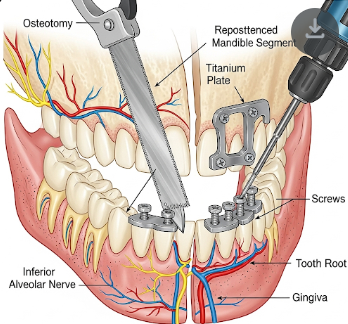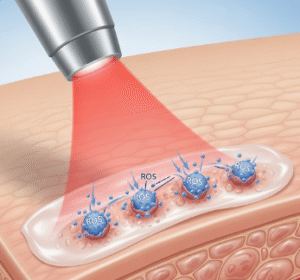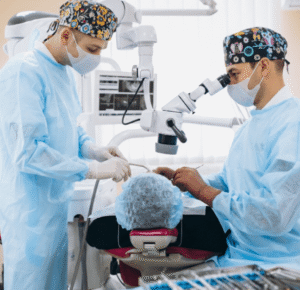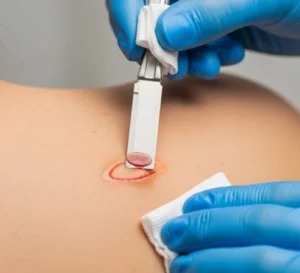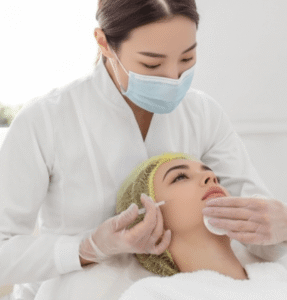Overview
Jaw surgery, also known as orthognathic surgery, is a corrective surgical procedure designed to realign the jawbones to improve function, aesthetics, and overall oral health. It is performed for patients with misaligned jaws, bite problems, facial asymmetry, or congenital deformities.
South Korea is renowned for advanced maxillofacial surgery, precision 3D planning, and expert multidisciplinary care, making it a preferred destination for patients seeking safe, effective, and aesthetically balanced jaw correction.
What is Jaw Surgery?
Jaw surgery involves:
- Repositioning the upper jaw (maxilla), lower jaw (mandible), or both
- Correcting malocclusion (misaligned bite), speech difficulties, or breathing problems
- Enhancing facial symmetry and aesthetics
Indications for jaw surgery include:
- Severe overbite, underbite, or crossbite
- Jaw asymmetry or facial imbalance
- Sleep apnea related to jaw position
- Difficulty chewing, speaking, or swallowing
- Congenital deformities or trauma repair
Techniques used:
- Le Fort I osteotomy (upper jaw)
- Bilateral sagittal split osteotomy (lower jaw)
- Genioplasty (chin repositioning) for aesthetic balance
What are the Benefits?
- Improved bite and chewing function → Corrects malocclusion
- Enhanced facial aesthetics → Balanced jawline and symmetry
- Better oral health → Reduced wear on teeth and gums
- Improved breathing and speech → Corrects airway obstruction or functional issues
- Long-term results → Permanent jaw realignment
- Expert care in Korea → Precision surgery with advanced planning and 3D imaging
Procedure Details
1) How should I prepare for jaw surgery?
- Preoperative evaluation → Comprehensive dental, orthodontic, and medical assessment
- Imaging studies → 3D CT scans, panoramic X-rays, and bite analysis
- Medication guidance → Avoid blood thinners, NSAIDs, and certain supplements
- Pre-surgery consultation → Discuss surgical plan, anesthesia, expected results, and post-operative care
- Orthodontic preparation → Braces or dental alignment may be required before surgery
2) What happens during the procedure?
- Anesthesia → General anesthesia for complete comfort and immobility
- Patient positioning → Supine with head stabilized
- Surgical steps →
- Incisions made inside the mouth (intraoral) or occasionally external
- Bones cut, repositioned, and stabilized with plates and screws
- Optional chin adjustment (genioplasty) for balanced aesthetics
- Jaw alignment verified intraoperatively
- Incisions closed and sutures applied
- Duration → Typically 2–6 hours depending on complexity
- Monitoring → Continuous vital signs, oxygen saturation, and anesthesia monitoring
3) What happens after surgery?
- Immediate post-operative care → Observation in recovery room or ICU for complex cases
- Pain management → Analgesics, anti-inflammatories, and sometimes IV medication
- Dietary restrictions → Soft or liquid diet for several weeks
- Oral hygiene → Special rinses and careful brushing around surgical areas
- Activity restrictions → Avoid heavy lifting, trauma, or strenuous activity for several weeks
- Follow-up visits → Regular monitoring of bone healing, orthodontic adjustments, and functional assessment
Risks / Benefits
Risks
- ➤ Infection at surgical sites
- ➤ Swelling, bruising, or temporary numbness
- ➤ Bleeding or hematoma formation
- ➤ Relapse or slight jaw misalignment
- ➤ Rare complications: nerve injury, airway issues, or reaction to anesthesia
Benefits
- ➤ Corrected bite and improved chewing function
- ➤ Enhanced facial symmetry and aesthetics
- ➤ Improved oral health and reduced dental complications
- ➤ Better breathing and speech function
- ➤ Permanent results with proper care
- ➤ High precision surgery under expert Korean surgeons
Recovery and Outlook
- Immediate recovery → Swelling and discomfort for 1–2 weeks; hospital stay usually 1–3 days
- Short-term follow-up → Weekly to monthly visits for first 3 months
- Return to normal activity → Light activities after 2–3 weeks; full physical activity after 6–8 weeks
- Diet progression → Gradual transition from liquid to soft and then regular diet
- Long-term outlook → Permanent improvement in bite, facial balance, and aesthetics
- Post-procedure care → Adherence to orthodontic adjustments, oral hygiene, and routine check-ups
- Expected results → Harmonious jawline, improved function, and boosted confidence
South Korea provides comprehensive jaw surgery care, preoperative planning, and post-operative monitoring to ensure safe, precise, and effective outcomes.
When To Call the Doctor
Contact your surgeon immediately if you notice:
- ⚠️ Severe swelling, redness, or discharge at incision sites
- ⚠️ Persistent or worsening pain not relieved by medications
- ⚠️ Difficulty breathing or swallowing
- ⚠️ Signs of infection (fever, pus, or unusual discharge)
- ⚠️ Numbness or tingling that does not improve over time
Best Korea Option / Process
South Korea is a leading destination for jaw (orthognathic) surgery due to:
- Expert maxillofacial surgeons and orthodontists
- Advanced 3D planning and minimally invasive techniques
- Multidisciplinary care including nutrition, speech therapy, and rehabilitation
- Comprehensive post-operative follow-up and monitoring
- International patient services → Consultation, translation, scheduling, and follow-up
Top Hospitals for Jaw Surgery in Korea:
- Asan Medical Center, Seoul – Advanced orthognathic surgery and 3D planning
- Samsung Medical Center – Expertise in complex jaw corrections and facial reconstruction
- Seoul National University Hospital (SNUH) – Multidisciplinary maxillofacial surgery and orthodontic care
- Yonsei Severance Hospital – Comprehensive jaw surgery and post-operative rehabilitation
👉 For patients seeking functional and aesthetic jaw correction, jaw surgery in Korea offers expert precision, long-term results, and multidisciplinary care to ensure optimal outcomes.

